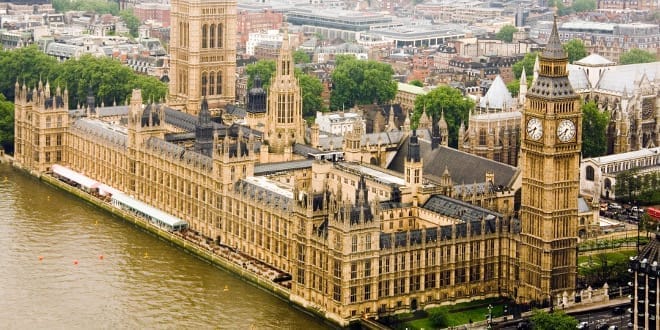The British government has introduced the Digital Economy Bill, which would increase the maximum penalty for online copyright infringement to ten years in prison. The government has been considering this change for some time, and has argued that the current maximum penalty of two years is insufficient to deter pirates from committing acts of infringement. Before introducing the bill, the government held a public consultation to get feedback from British citizens, businesses and organizations. Over a thousand responses were sent in, with 98% opposing an increase in the maximum penalty to ten years.
Despite the seeming unpopularity of the change, the British government has decided to push it through anyway. The government has argued that it is necessary to deal with large-scale offenders and the maximum penalty would only be applied in rare cases. Another reason for increasing the penalty is to bring it in line with counterfeiting, which carries a maximum sentence of ten years. Opponents of piracy claim there is no difference between counterfeiting and digital copyright infringement.
The Digital Economy Bill is a 151 page behemoth, which contains numerous changes, in addition to the increased penalty for piracy. Many of the changes grant more authority to the communications regulator, Ofcom. The bill would give homes and businesses the right to demand a minimum download speed from service providers. What that minimum speed will be, however, is not written into the law. It will be up to Ofcom to regulate that matter. The government's explanation for not setting the speed by law is that, "Regulations can be updated in a much shorter timescale than a new bill, which can take a year before it can be brought into force."
The bill would also give Ofcom the power to fine mobile service providers who fail to meet the coverage requirements that they agreed to, in order to obtain their spectrum license. Currently, Ofcom's only options to deal with providers who don't meet their obligations is to revoke the license or launch criminal charges. The regulator believes this bill would give it more flexibility to deal with companies that breach their license agreement. The bill also gives Ofcom oversight over the BBC.
Another provision in the bill would create a new age verification regulatory body. The regulator will create guidelines governing how porn sites verify that their users are 18 or older. The body will be able to fine porn sites up to £250,000 for non-compliance, or about $320,000. The regulator will also be able to deal with credit card companies and other payment providers to cut off funds if a site refuses to comply.
Should the maximum sentence for piracy be raised to 10 years? Do you agree with Ofcom's new regulatory powers? Is a age verification regulator a good idea? Leave your comments below.







